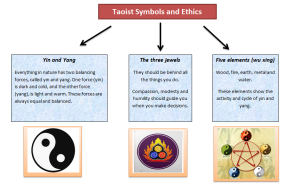key principles that guide a decentralist’s beliefs
Decentralism, as a socio-political philosophy, advocates for the distribution of power, authority, and decision-making away from centralized institutions and towards local communities or individual actors. Rooted in a desire to empower individuals, promote diversity, and ensure responsive governance, decentralism is guided by a set of key principles that underpin its beliefs and inform its approach to various aspects of society. These principles, while adaptable to different contexts, collectively provide a framework for understanding the core values and goals of decentralists.
Individual Empowerment and Autonomy: At the heart of decentralist beliefs is the conviction that individuals should have the autonomy to make decisions that directly affect their lives. Decentralists emphasize the importance of self-determination, enabling people to shape their communities and environments according to their unique needs and preferences. This principle values the ability of individuals to participate actively in local governance and co-create solutions to challenges.

Localism and Community Engagement: Decentralist champion the significance of local communities as essential units of society. They believe that decisions should be made at the most localized level possible, allowing communities to tailor policies and practices to their specific circumstances. This principle encourages active community engagement, fostering a sense of responsibility, ownership, and solidarity among residents.
What are the key principles that guide a decentralist’s beliefs?
Diversity and Pluralism: Decentralism recognizes the value of diverse perspectives and ideas that arise from different communities and regions. By distributing power, decentralists seek to avoid homogenization and top-down imposition of policies, enabling a rich tapestry of cultural, social, and economic expressions. Embracing diversity strengthens social cohesion and enhances the adaptability of society to change.
Responsive Governance: A key tenet of decentralist beliefs is the idea that decision-makers should be close to the issues they address. Local authorities are more attuned to the immediate concerns of their constituents and can respond more effectively to changing circumstances. Decentralism thus promotes a more flexible and agile form of governance that can swiftly adapt to emerging challenges.
Subsidiarity: The principle of subsidiarity holds that matters should be handled at the lowest level of authority capable of addressing them adequately. In line with this principle, decentralists argue that higher-level institutions should only intervene when local entities are unable to effectively address certain issues on their own. This approach respects the autonomy and expertise of local decision-makers.
Resilience and Innovation: By encouraging local decision-making and fostering diverse solutions, decentralism contributes to the development of resilient and innovative communities. When individuals and communities have the agency to experiment with different approaches, they can better adapt to changing circumstances and develop creative solutions to complex problems.
Limitation of Centralized Power: Decentralists are wary of the concentration of power within a few centralized institutions, which they believe can lead to abuses and inefficiencies. By dispersing power, decentralism seeks to prevent monopolies on authority and resources, promoting a more balanced distribution of influence and wealth.
Environmental Sustainability: Many decentralists emphasize the importance of local environmental stewardship. They argue that communities are better equipped to make sustainable choices when it comes to resource management, land use, and environmental protection. Decentralism thus aligns with a holistic approach to ecological well-being.
Civic Participation and Education: In order for decentralism to thrive, an informed and engaged citizenry is crucial. Decentralists emphasize the importance of civic education and active participation in local decision-making processes. This principle aims to foster a sense of responsibility and accountability among individuals, ensuring that decentralized systems remain effective and responsive.
Voluntary Cooperation: Decentralism promotes voluntary cooperation and association among individuals and communities. Rather than relying on coercion or centralized authority, decentralists believe that people are more likely to collaborate when they have the freedom to engage on their own terms. This principle encourages the development of bottom-up networks and partnerships.
In conclusion, the key principles that guide a decentralist’s beliefs revolve around individual empowerment, community engagement, diversity, responsive governance, subsidiarity, resilience, limitation of centralized power, environmental sustainability, civic participation, and voluntary cooperation. By adhering to these principles, decentralists advocate for a more inclusive, adaptable, and participatory society that empowers individuals and communities to shape their own destinies.